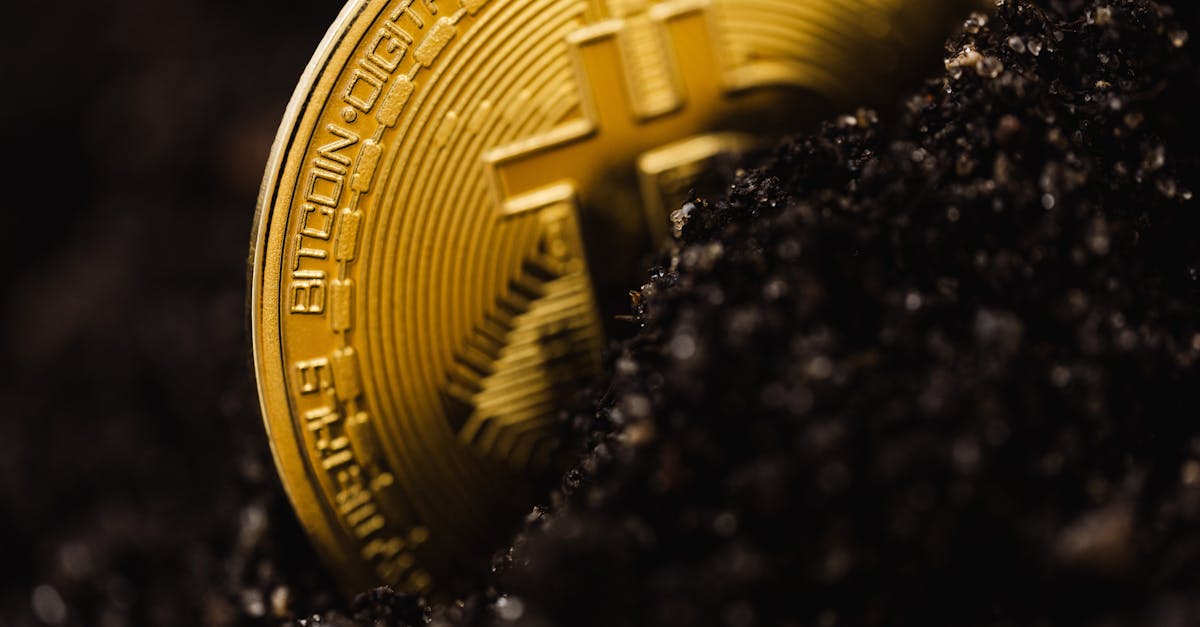A Path to Responsible Resplendence: The ICMM Framework Transforming Gold Mining

The Golden Imperative: Unlocking Sustainability in Gold Mining
The world’s thirst for gold is unquenchable. Its allure has shaped history, driven economies, and fueled human desire for centuries. But this glittering treasure comes with a hidden cost: the environmental and social impacts of gold mining. Recognizing this urgent challenge, the International Council on Mining and Metals (ICMM) has emerged as a beacon of hope, guiding the industry towards a more sustainable future.
The ICMM’s Sustainable Development Framework serves as a roadmap for responsible mining, setting forth a comprehensive set of principles that address the full spectrum of environmental and social concerns. Embracing these principles, gold miners are embarking on a transformative journey, redefining the industry’s legacy and ensuring the continued availability of this precious metal without compromising our planet and its people.
Key Insights
Key Insights:
- The ICMM framework provides a comprehensive set of principles for sustainable mining, covering environmental, social, and economic issues.
- Gold miners face challenges in adopting the ICMM framework, but there are also significant opportunities, such as increased access to capital and improved reputation.
- By adopting the ICMM framework, gold miners can reduce their environmental impact, improve their social performance, and contribute to the sustainable development of local communities.
- The ICMM framework is an important tool for ensuring a sustainable and responsible supply chain for gold.
- Consumers can support sustainable gold mining by choosing to buy gold from companies that have adopted the ICMM framework.
1. Introduction: The Imperative for Sustainable Mining
Gold: a timeless symbol of wealth and allure, adorning everything from jewelry to electronics. But behind this glittering facade lies a hidden cost: the environmental and social impacts of gold mining. The global demand for gold continues to soar, driven by its use in jewelry, investment, and technology. This relentless pursuit has placed immense pressure on the planet, leading to deforestation, water pollution, and the displacement of communities.
The traditional methods of gold mining, often involving the use of toxic chemicals like cyanide and mercury, have wreaked havoc on ecosystems and human health. Acid mine drainage, a byproduct of mining, has contaminated rivers and groundwater, poisoning aquatic life and threatening drinking water sources. Artisanal and small-scale gold mining, prevalent in developing countries, often operates outside of regulations, exacerbating these environmental and social risks.
Recognizing the urgent need for change, the mining industry is embracing sustainable practices to minimize its environmental footprint and protect communities. Sustainable mining aims to strike a delicate balance between meeting the demand for gold and safeguarding the planet and its people. By adopting responsible mining practices, gold miners can reduce their environmental impact, protect biodiversity, ensure fair labor conditions, and contribute to the well-being of local communities.
2. Introducing the ICMM Sustainable Development Framework

Introducing the ICMM Sustainable Development Framework
In response to the growing concerns surrounding the environmental and social impacts of mining, the International Council on Mining and Metals (ICMM) emerged as a beacon of hope, guiding the industry towards a more sustainable future. Established in 2001, the ICMM is a global organization that brings together mining and metals companies, mining associations, and other stakeholders to promote sustainable mining practices.
At the heart of the ICMM’s mission lies the Sustainable Development Framework, a comprehensive set of principles that provide a roadmap for responsible mining. These principles cover a wide range of issues, including environmental stewardship, social responsibility, and economic development. By adhering to these principles, ICMM members commit to minimizing their environmental footprint, respecting human rights, and contributing to the well-being of local communities.
The ICMM framework has gained widespread recognition and support within the mining industry. Many of the world’s largest mining companies, including BHP, Rio Tinto, and Anglo American, are members of the ICMM and have adopted its principles. The framework has also been endorsed by governments, investors, and civil society organizations, solidifying its position as the leading standard for sustainable mining.
3. Environmental Stewardship in Gold Mining
The ICMM’s Sustainable Development Framework places strong emphasis on environmental stewardship, recognizing the critical importance of protecting the planet for future generations. ICMM members are committed to minimizing their environmental impact through responsible water management, biodiversity conservation, and reducing greenhouse gas emissions.
Water scarcity is a major challenge facing many gold mining operations, particularly in arid regions. ICMM members are implementing innovative water management strategies to reduce their water consumption and protect local water resources. These strategies include recycling and reusing water, using more efficient mining techniques, and partnering with local communities to improve water infrastructure.
Biodiversity conservation is another key focus area for ICMM members. Mining operations can have a significant impact on local ecosystems, including the destruction of habitats and the displacement of wildlife. ICMM members are working to minimize their impact on biodiversity by conducting environmental impact assessments, restoring degraded land, and supporting conservation initiatives.
4. Social Responsibility in the Gold Mining Sector

Social Responsibility in the Gold Mining Sector
Beyond its environmental commitments, the ICMM framework also places great emphasis on social responsibility. ICMM members are committed to respecting human rights, fostering inclusive communities, and ensuring fair labor practices in their gold mining operations.
The mining industry has a long history of human rights abuses, including forced labor, child labor, and discrimination. ICMM members are working to address these issues by implementing robust human rights due diligence processes, providing training to employees and contractors on human rights, and partnering with local communities to identify and mitigate human rights risks.
ICMM members are also committed to fostering inclusive communities and creating shared value for the communities in which they operate. This includes investing in local infrastructure, supporting education and healthcare programs, and promoting the employment of local people.
5. Case Studies: Success Stories in Sustainable Gold Mining
The ICMM framework has been successfully implemented by a number of gold mining companies around the world, leading to tangible benefits for the environment, local communities, and business operations.
One example is Newmont Corporation, a global gold mining company with operations in the Americas, Africa, and Asia. Newmont has adopted the ICMM framework and has made significant progress in reducing its environmental impact, improving its social performance, and contributing to the economic development of local communities.
Another example is AngloGold Ashanti, a gold mining company with operations in Africa, South America, and Australia. AngloGold Ashanti has been recognized for its leadership in sustainable mining practices, including its commitment to water stewardship, biodiversity conservation, and community development.
6. Challenges and Opportunities for Gold Miners
Challenges and Opportunities for Gold Miners
While the ICMM framework provides a valuable roadmap for sustainable gold mining, its adoption by gold miners can be challenging. One challenge is the high cost of implementing sustainable practices, which can include investments in new technologies, training for employees, and community development programs.
Another challenge is the regulatory environment, which can vary significantly from country to country. Some countries have strong environmental and social regulations, while others have weak or poorly enforced regulations. This can make it difficult for gold miners to operate in a sustainable manner, especially in countries with weak governance.
Despite these challenges, there are also a number of opportunities for gold miners who adopt the ICMM framework. These opportunities include:
- Increased access to capital: Investors are increasingly looking to invest in companies that are committed to sustainability. Gold miners who adopt the ICMM framework may be more attractive to investors, as they are seen as being more responsible and less risky.
- Improved reputation: Consumers are becoming more aware of the environmental and social impacts of gold mining. Gold miners who adopt the ICMM framework can improve their reputation by demonstrating their commitment to sustainability.
7. Conclusion: A Path to a Sustainable Future
Conclusion: A Path to a Sustainable Future
The ICMM framework has had a positive impact on the gold mining industry, helping to promote sustainable practices and reduce the environmental and social impacts of gold mining. By adopting the ICMM framework, gold miners can:
- Reduce their environmental impact by conserving water, reducing greenhouse gas emissions, and protecting biodiversity.
- Improve their social performance by respecting human rights, fostering inclusive communities, and ensuring fair labor practices.
- Enhance their reputation and attract investors by demonstrating their commitment to sustainability.
The ICMM framework is an important tool for ensuring a sustainable and responsible supply chain for gold. By adopting the ICMM framework, gold miners can help to protect the planet, improve the lives of local communities, and ensure that gold continues to be a precious resource for generations to come.
What are the main principles of the ICMM Sustainable Development Framework?
The ICMM Sustainable Development Framework is based on 10 principles that address environmental, social, and economic issues. These principles include commitments to responsible mining practices, protecting biodiversity, reducing greenhouse gas emissions, respecting human rights, and contributing to local communities.
What are some of the challenges that gold miners face in adopting the ICMM framework?
Gold miners face a number of challenges in adopting the ICMM framework, including the high cost of implementing sustainable practices, regulatory hurdles, and changing consumer preferences. However, there are also a number of opportunities for gold miners who adopt the ICMM framework, such as increased access to capital and improved reputation.
What are the benefits of adopting the ICMM framework for gold miners?
There are a number of benefits for gold miners who adopt the ICMM framework, including reduced environmental impact, improved social performance, enhanced reputation, and increased access to capital.
Key Insights
Key Insights:
| Insight | Description | |—|—|—|—| | The ICMM framework provides a comprehensive set of principles for sustainable mining, covering environmental, social, and economic issues. | The ICMM framework is a valuable tool for gold miners who are committed to operating in a sustainable and responsible manner. | | Gold miners face challenges in adopting the ICMM framework, but there are also significant opportunities, such as increased access to capital and improved reputation. | While there are challenges to adopting the ICMM framework, the benefits can be significant for gold miners. | | By adopting the ICMM framework, gold miners can reduce their environmental impact, improve their social performance, and contribute to the sustainable development of local communities. |The ICMM framework can help gold miners to minimize their negative impacts and maximize their positive impacts. | | The ICMM framework is an important tool for ensuring a sustainable and responsible supply chain for gold. | Consumers can be confident that gold that has been mined in accordance with the ICMM framework has been produced in a sustainable and responsible manner. | | Consumers can support sustainable gold mining by choosing to buy gold from companies that have adopted the ICMM framework. | Consumers have the power to drive change in the gold mining industry by supporting companies that are committed to sustainability. |